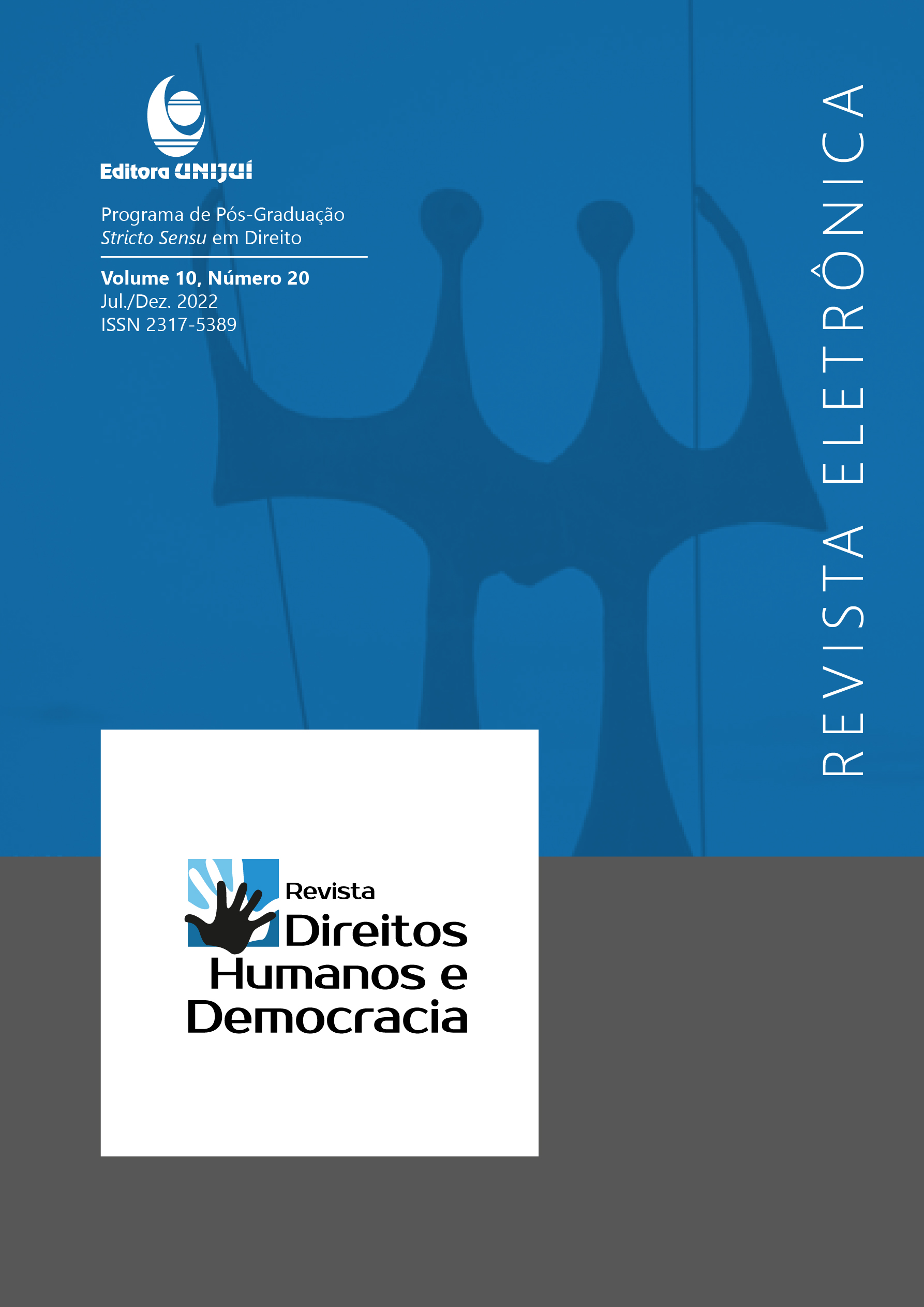Jurisdição constitucional do STF nas ações diretas: a legitimidade ativa dos povos indígenas no controle de constitucionalidade
DOI:
https://doi.org/10.21527/2317-5389.2022.20.13429Palavras-chave:
Direitos humanos e saúde, controle de constitucionalidade, legitimidade dos indígenas, movimentos sociaisResumo
A Constituição de 1988 consagrou novos mecanismos de controle abstrato e concentrado de constitucionalidade com a possibilidade de participação de atores representativos da sociedade civil. O texto constitucional, no entanto, não reconheceu expressamente a legitimidade ativa de organizações sociais representativas de minorias, como a de organizações dos povos indígenas. A despeito disso, o Supremo Tribunal Federal tem precedentes que interpretam ampliativamente o rol de legitimados para permitir que os grupos vulneráveis proponham essas ações em nome próprio. O objetivo do presente estudo consistiu em analisar se os povos indígenas têm legitimação para acionar a Corte por meio de ações diretas para a defesa de seus direitos fundamentais. Somente em 2020, por ocasião da ADPF 709, os indígenas ingressaram na jurisdição concentrada em nome próprio para a defesa de direitos relacionados à saúde, ação esta ensejada pela pandemia do novo coronavírus. Tratou-se de um marco importante, uma vez que a participação popular no Supremo assegura a capacidade de o povo expressar politicamente a sua identidade e auxilia no processo de concretização da missão destinada à defesa e proteção dos direitos humanos por meio do controle de constitucionalidade. Caso essa tendência de abertura se consagre na Corte, essa estará mais comprometida com os valores emancipatórios da Constituição de 1988, conhecida como Constituição Cidadã, por salvaguardar mecanismos de proteção democrática.
Downloads
Publicado
Como Citar
Edição
Seção
Licença
Copyright (c) 2022 Revista Direitos Humanos e Democracia

Este trabalho está licenciado sob uma licença Creative Commons Attribution 4.0 International License.
Ao publicar na Revista Direitos Humanos e Democracia, os autores concordam com os seguintes termos:
Os trabalhos seguem a licença Creative Commons Atribuição 4.0 Internacional (CC BY 4.0), que permite:
Compartilhar — copiar e redistribuir o material em qualquer meio ou formato;
Adaptar — remixar, transformar e criar a partir do material para qualquer fim, inclusive comercial.
Essas permissões são irrevogáveis, desde que respeitados os seguintes termos:
Atribuição — os autores devem ser devidamente creditados, com link para a licença e indicação de eventuais alterações realizadas.
Sem restrições adicionais — não podem ser aplicadas condições legais ou tecnológicas que restrinjam o uso permitido pela licença.
Avisos:
A licença não se aplica a elementos em domínio público ou cobertos por exceções legais.
A licença não garante todos os direitos necessários para usos específicos (ex.: direitos de imagem, privacidade ou morais).
A revista não se responsabiliza pelas opiniões expressas nos artigos, que são de exclusiva responsabilidade dos autores. O Editor, com o apoio do Comitê Editorial, reserva-se o direito de sugerir ou solicitar modificações quando necessário.
Somente serão aceitos artigos científicos originais, com resultados de pesquisas de interesse que não tenham sido publicados nem submetidos simultaneamente a outro periódico com o mesmo objetivo.
A menção a marcas comerciais ou produtos específicos destina-se apenas à identificação, sem qualquer vínculo promocional por parte dos autores ou da revista.
Contrato de Licença: Os autores mantém os direitos autorais sobre seu artigo, e concedem a Revista Direitos Humanos e Democracia o direito de primeira publicação.













